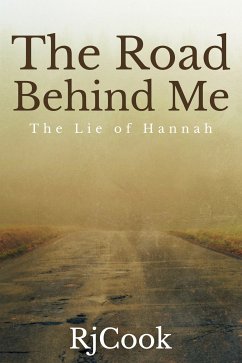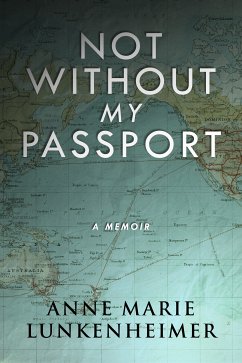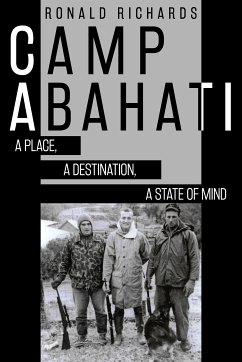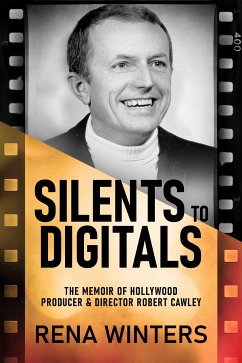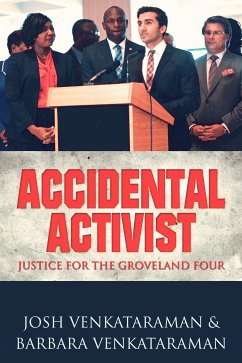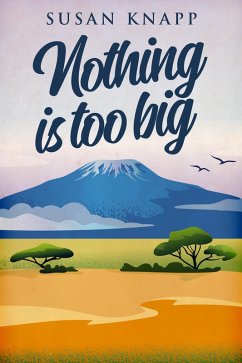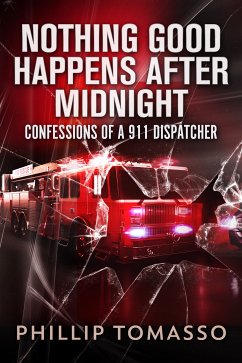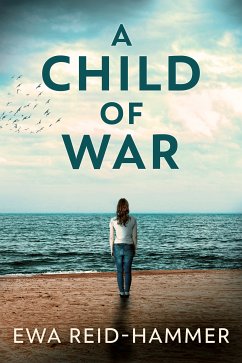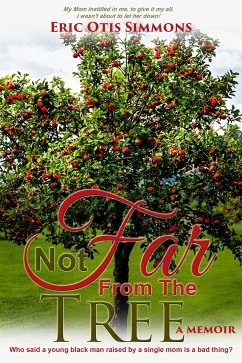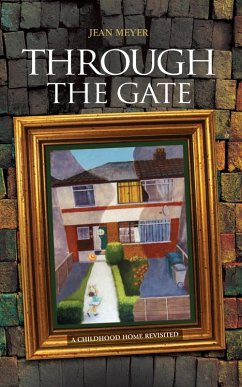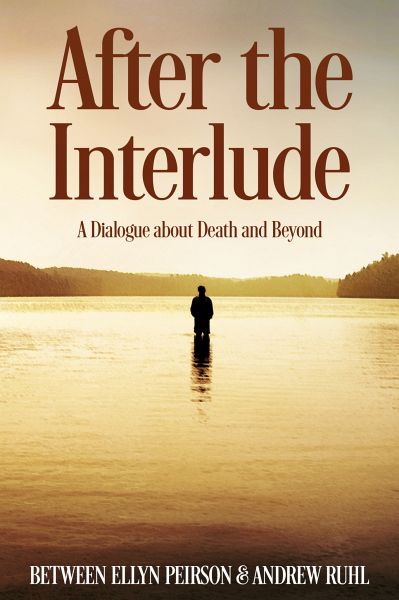
After The Interlude (eBook, ePUB)

PAYBACK Punkte
0 °P sammeln!
After the Interlude explores destiny, the sibling relationship, the impact on destiny of family of origin dynamics, where we were before we were born, where we're going after we've left the planet, thin places, dreams, prayer and the importance of unbending intent.The book tackles purpose and the most difficult personal question of all personal questions-Why? After the Interlude converses with existence.After the Interlude is an expression of an Everyperson. All human beings know fear. All human beings lose family members. All human beings question. All human beings are wounded and flawed. And...
After the Interlude explores destiny, the sibling relationship, the impact on destiny of family of origin dynamics, where we were before we were born, where we're going after we've left the planet, thin places, dreams, prayer and the importance of unbending intent.
The book tackles purpose and the most difficult personal question of all personal questions-Why? After the Interlude converses with existence.
After the Interlude is an expression of an Everyperson. All human beings know fear. All human beings lose family members. All human beings question. All human beings are wounded and flawed. And, above all, all human beings come with a destiny to be uncovered and lived and a monumental capacity to love. The wounds that happen along the way are part of the contract we undertake in coming here, trailing our own Wordsworthian clouds of glory. Whether we come once or multiple times is a moot point. The point of life, according to After the Interlude, is now and what we do with all the nows of our lives.
After the Interlude is highly personal and yet it will touch readers in their personal beliefs and fears. With references to the Platonic philosophers, Julian of Norwich, Emily Dickinson, William Blake, C. S. Lewis, Annie Dillard, Mary Oliver and Chet Raymo, the argument that the purpose of life is the advancement of the soul is brought home. And it's brought home with an openness that allows the reader to try it on for size, rather than insisting on adoption or rejection.
And, above all, After The Interlude faces death head-on. Ellyn Peirson's credo on the soul's journey is a personal culmination of years of exploration of the soul. Andrew Ruhl, Ellyn's soul-friend, responds to and frames the theories and propositions in words and photography.
It all began simply enough. The question was rather ordinary. Margaret, Ellyn's only sibling and soul-companion of longest standing, had just died. Andrew, in his fourth post-bone-marrow-transplant year, wondered via email what the experience of Margaret's actual death-her process of leave-taking-had revealed to Ellyn. Because of their familiar journey into the territory of Andrew's leukemia, its treatments and effects, Andrew and Ellyn communicated easily about such matters.
While the sharing during the process of Margaret's death was soothing for Ellyn, Andrew's question the morning of Margaret's death was different, unanswerable in a sense, and Ellyn tucked it away in her computer. She'd reply soon.
"What was her death like?" Andrew wondered. "What did you see and understand?"
Simple enough... but in the paradoxical way that life and death can shift paradigms and relationships, the question became a holy grail. Pondering, strategizing, mentally rehearsing, Ellyn spent two months traipsing the question's circumference. How does one begin to give words to the sanctity of grief and gratitude, to the observation of a death, to the exit of a huge soul? This critical task seemed to be a beginning without a beginning.
Weary of coughing and sniffing from what she called her grief colds, Ellyn carved out a short weekend in early May to retreat to her cottage... to rest and to address the essence of Andrew's quest. The floodgates opened... in dreams and writing.
Over the next seven months of 2006, After the Interlude wrote itself. As each chapter was complete, Ellyn sent it off to Andrew. Andrew embraced each experience and commented, sometimes with his own word-sketches and sometimes with photography. Much of the writing occurred at Spindrift, the cottage that dominates the landscape of After the Interlude.
The book tackles purpose and the most difficult personal question of all personal questions-Why? After the Interlude converses with existence.
After the Interlude is an expression of an Everyperson. All human beings know fear. All human beings lose family members. All human beings question. All human beings are wounded and flawed. And, above all, all human beings come with a destiny to be uncovered and lived and a monumental capacity to love. The wounds that happen along the way are part of the contract we undertake in coming here, trailing our own Wordsworthian clouds of glory. Whether we come once or multiple times is a moot point. The point of life, according to After the Interlude, is now and what we do with all the nows of our lives.
After the Interlude is highly personal and yet it will touch readers in their personal beliefs and fears. With references to the Platonic philosophers, Julian of Norwich, Emily Dickinson, William Blake, C. S. Lewis, Annie Dillard, Mary Oliver and Chet Raymo, the argument that the purpose of life is the advancement of the soul is brought home. And it's brought home with an openness that allows the reader to try it on for size, rather than insisting on adoption or rejection.
And, above all, After The Interlude faces death head-on. Ellyn Peirson's credo on the soul's journey is a personal culmination of years of exploration of the soul. Andrew Ruhl, Ellyn's soul-friend, responds to and frames the theories and propositions in words and photography.
It all began simply enough. The question was rather ordinary. Margaret, Ellyn's only sibling and soul-companion of longest standing, had just died. Andrew, in his fourth post-bone-marrow-transplant year, wondered via email what the experience of Margaret's actual death-her process of leave-taking-had revealed to Ellyn. Because of their familiar journey into the territory of Andrew's leukemia, its treatments and effects, Andrew and Ellyn communicated easily about such matters.
While the sharing during the process of Margaret's death was soothing for Ellyn, Andrew's question the morning of Margaret's death was different, unanswerable in a sense, and Ellyn tucked it away in her computer. She'd reply soon.
"What was her death like?" Andrew wondered. "What did you see and understand?"
Simple enough... but in the paradoxical way that life and death can shift paradigms and relationships, the question became a holy grail. Pondering, strategizing, mentally rehearsing, Ellyn spent two months traipsing the question's circumference. How does one begin to give words to the sanctity of grief and gratitude, to the observation of a death, to the exit of a huge soul? This critical task seemed to be a beginning without a beginning.
Weary of coughing and sniffing from what she called her grief colds, Ellyn carved out a short weekend in early May to retreat to her cottage... to rest and to address the essence of Andrew's quest. The floodgates opened... in dreams and writing.
Over the next seven months of 2006, After the Interlude wrote itself. As each chapter was complete, Ellyn sent it off to Andrew. Andrew embraced each experience and commented, sometimes with his own word-sketches and sometimes with photography. Much of the writing occurred at Spindrift, the cottage that dominates the landscape of After the Interlude.
Dieser Download kann aus rechtlichen Gründen nur mit Rechnungsadresse in A, B, BG, CY, CZ, D, DK, EW, E, FIN, F, GR, H, IRL, I, LT, L, LR, M, NL, PL, P, R, S, SLO, SK ausgeliefert werden.




